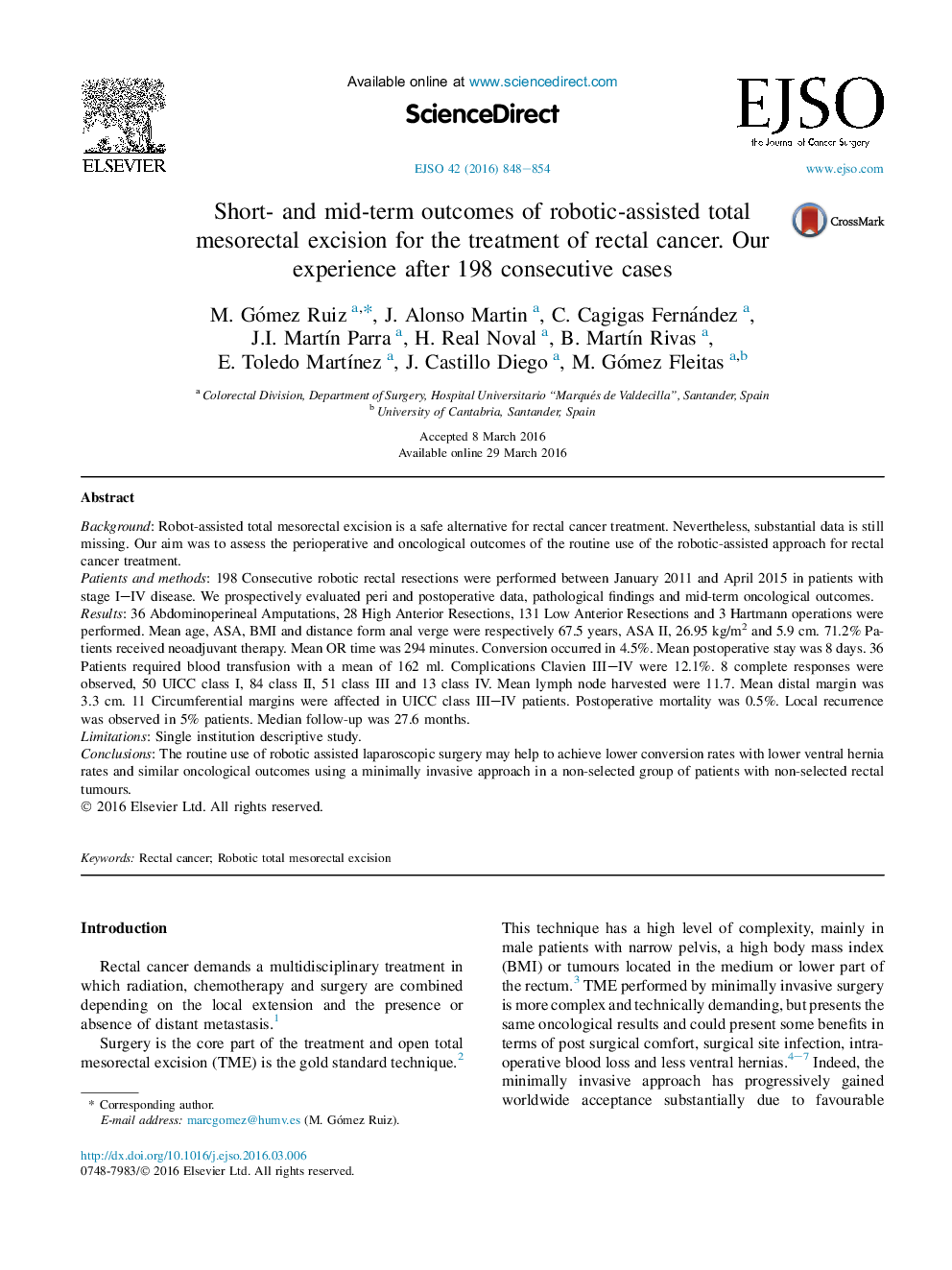| Article ID | Journal | Published Year | Pages | File Type |
|---|---|---|---|---|
| 3984544 | European Journal of Surgical Oncology (EJSO) | 2016 | 7 Pages |
BackgroundRobot-assisted total mesorectal excision is a safe alternative for rectal cancer treatment. Nevertheless, substantial data is still missing. Our aim was to assess the perioperative and oncological outcomes of the routine use of the robotic-assisted approach for rectal cancer treatment.Patients and methods198 Consecutive robotic rectal resections were performed between January 2011 and April 2015 in patients with stage I–IV disease. We prospectively evaluated peri and postoperative data, pathological findings and mid-term oncological outcomes.Results36 Abdominoperineal Amputations, 28 High Anterior Resections, 131 Low Anterior Resections and 3 Hartmann operations were performed. Mean age, ASA, BMI and distance form anal verge were respectively 67.5 years, ASA II, 26.95 kg/m2 and 5.9 cm. 71.2% Patients received neoadjuvant therapy. Mean OR time was 294 minutes. Conversion occurred in 4.5%. Mean postoperative stay was 8 days. 36 Patients required blood transfusion with a mean of 162 ml. Complications Clavien III–IV were 12.1%. 8 complete responses were observed, 50 UICC class I, 84 class II, 51 class III and 13 class IV. Mean lymph node harvested were 11.7. Mean distal margin was 3.3 cm. 11 Circumferential margins were affected in UICC class III–IV patients. Postoperative mortality was 0.5%. Local recurrence was observed in 5% patients. Median follow-up was 27.6 months.LimitationsSingle institution descriptive study.ConclusionsThe routine use of robotic assisted laparoscopic surgery may help to achieve lower conversion rates with lower ventral hernia rates and similar oncological outcomes using a minimally invasive approach in a non-selected group of patients with non-selected rectal tumours.
